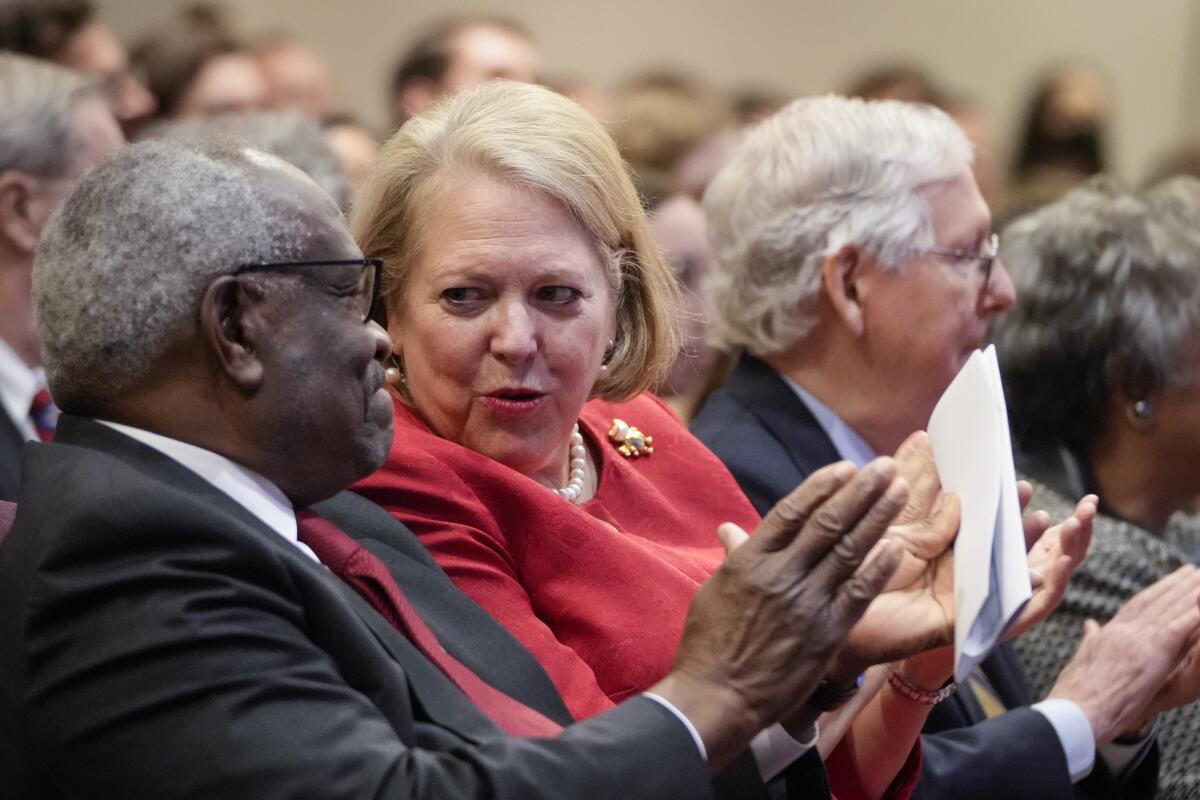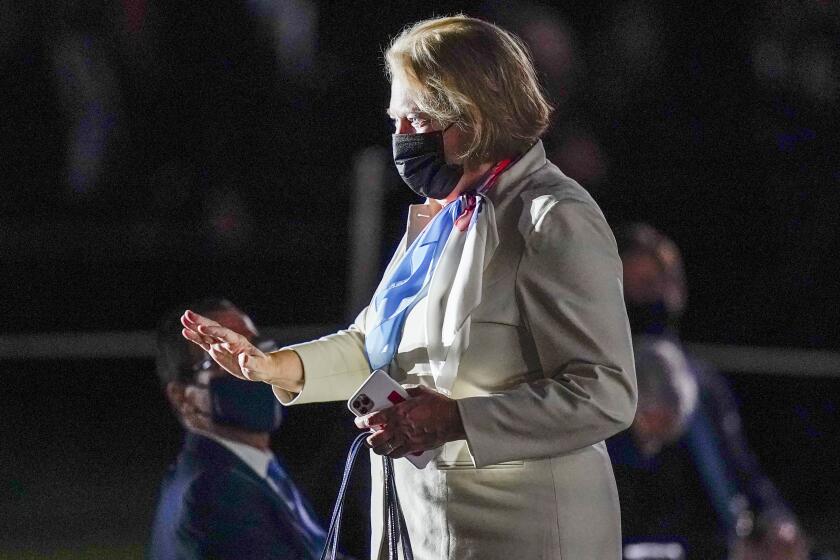Editorial: Of course Clarence Thomas should recuse himself

- Share via
In recent weeks, revelations about political activity by Virginia Thomas, the wife of U.S. Supreme Court Justice Clarence Thomas, have evolved from alarming to beyond the pale.
First came a New Yorker investigation in January that detailed numerous ways Thomas and her political-lobbying firm, Liberty Consulting, are linked to right-wing groups with high-stakes cases before the court on abortion, affirmative action and gun rights. In some instances, she was paid by groups filing amicus briefs that her husband would presumably read in the course of his deliberations.
Then came a New York Times investigation showing how Thomas used her husband’s relationship with then-President Trump to try to influence policy and personnel decisions in the White House. It also reported that she helped unite various groups participating in the Jan. 6 rally that resulted in the deadly attack on the Capitol as Congress was certifying Biden’s election. (Virginia Thomas rejected the report in an interview with the Washington Free Beacon, saying that she did not help organize the rally, but that she attended it until she got too cold.)
Virginia Thomas, wife of Supreme Court Justice Clarence Thomas, sent weeks of text messages imploring White House Chief of Staff Mark Meadows to act to overturn the 2020 presidential election.
Most recently, a Washington Post investigation revealed that after the 2020 election, Virginia Thomas repeatedly pressured Trump’s chief of staff, Mark Meadows, to pursue efforts to overturn Joe Biden’s victory. In a series of jaw-dropping text messages — “Help This Great President stand firm, Mark!!!” and “The majority knows Biden and the Left is attempting the greatest Heist of our History,” among them — Thomas spread falsehoods as she urged the president’s team to attempt to reverse the election results. All this was happening as Trump and his allies vowed to take their cockamamie allegations of election fraud to the Supreme Court.
Those cases, of course, were so flimsy that they never made it to the nation’s highest court, preventing us from knowing if Justice Thomas would have recused himself from ruling on the matter in which he clearly had a conflict of interest.
But in January, we got a glimpse of the justice’s frightful lack of judicial ethics. That’s when the Supreme Court rejected Trump’s plea to shield his White House records — which included communication with Virginia Thomas — from the congressional committee investigating the Jan. 6 attack. Only one justice sided with Trump and dissented from the ruling: Clarence Thomas.
What a disgrace.
Of course Thomas should have recused himself from that case. And he must, for the sake of fairness and public trust, recuse himself from any other Jan. 6 cases that may come before the court.
Fixed terms would lower the political temperature of Supreme Court appointments
Beyond that, the disturbing chain of events demonstrates that the Supreme Court desperately needs stronger ethics rules. Right now the nine justices of the Supreme Court — the most powerful judges in the country — essentially police themselves when it comes to ethics. While they’re supposed to be guided by the same code of conduct that other federal judges must follow, justices decide whether to recuse themselves in any given situation. That must change.
The Supreme Court’s power rests in the trust it earns from the public. Americans may not agree with every ruling from the court, but they need to trust that the justices’ decisions are fair, backed by integrity and driven by sound interpretations of the law. There is no room for personal favors from the bench. It’s time for the Supreme Court to establish a code of ethical conduct — and stick to it.
More to Read
A cure for the common opinion
Get thought-provoking perspectives with our weekly newsletter.
You may occasionally receive promotional content from the Los Angeles Times.











